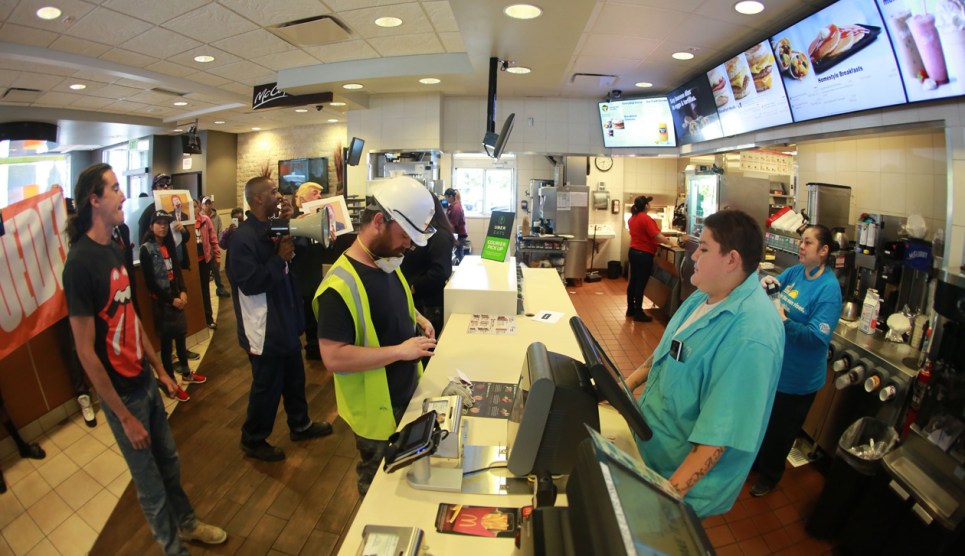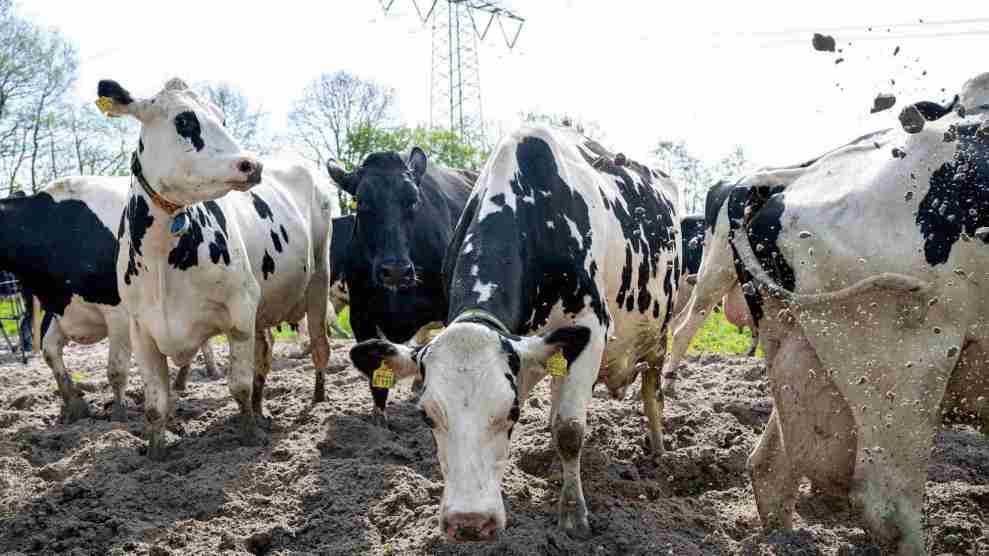
Marshall/Rex Shutterstock via ZUMA
The minimum wage debate has settled into a dreary format: you can pretty much guess what a paper concludes just by reading the author’s name on the title page. The latest entry is from Grace Lordan and David Neumark, and since Neumark has never met a minimum wage he liked, it’s a pretty good guess that his latest paper describes job losses from increases in the minimum wage. Sure enough, it does.
That doesn’t mean he’s wrong, though, and the issue described in the paper is a real one: a higher minimum wage increases the financial motivation to automate jobs. Lordan and Neumark focus on workers with only a high school education working at “automatable tasks.” Here’s the basic result:
In the aggregate across all industries, as indicated in column (1), we find that minimum wage increases cause a statistically significant reallocation of labour away from automatable tasks. We find that a $1 increase in the minimum wage leads to a 0.43 percentage point decrease in the share of automatable jobs done by low-skilled workers.
If I’m reading Table 1 correctly, “automatable” tasks make up 30 percent of the total. This means that among all blue-collar workers, a $1 increase in the minimum wage leads to a 0.13 percentage point decrease in total employment. However, the authors also report that only 12 percent of these workers become unemployed (the rest move into other jobs). That implies a 0.016 percentage point decrease in actual employment
Nationwide, the unemployment rate is 4.5 percent among workers with only a high school degree. Raising the minimum wage by a whopping $6 would increase that to 4.6 percent.¹ This is probably why the authors focus less on unemployment and more on how minimum wage increases could lead to job changes:
Our work suggests that sharp minimum wage increases in the United States in coming years will shape the types of jobs held by low-skilled workers, and create employment challenges for some of them….Given data limitations, we cannot address the permanence of the effects.
The effects they find are higher for some groups than others (old and young vs. middle aged), and higher in some industries than others (manufacturing vs. transportation). And the reallocation of labor is likely to increase in the future as automation becomes more and more capable. At the moment, however, the effect is pretty small.
¹This actually seems surprisingly low to me. I would have expected a bigger effect. Perhaps it’s because industries with lots of automatable jobs (manufacturing, for example) already pay more than the minimum wage, while industries that actually depend on minimum wage labor (housecleaning and fast food) aren’t easily automatable.

















